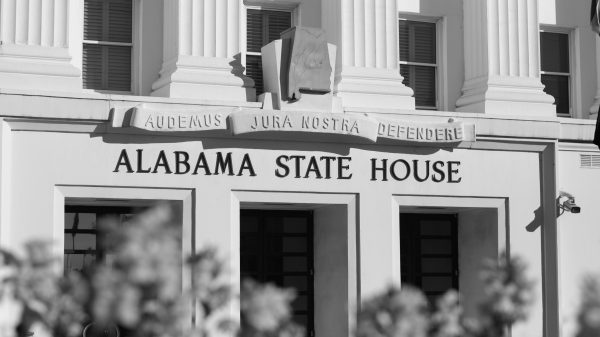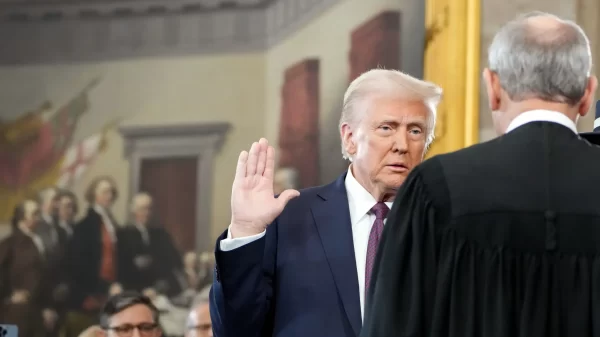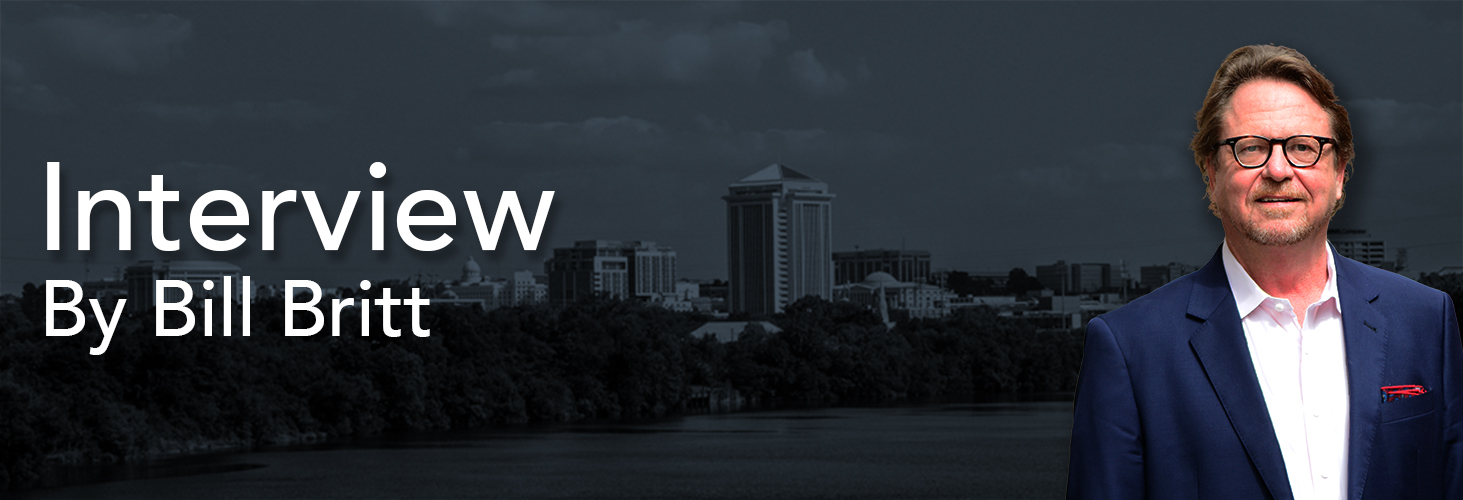By Bill Britt
Alabama Political Reporter
Recently, we had a conversation with former U.S. Representative Artur Davis about the Alabama legislative session. In the interview he shares some of his thoughts on the challenges and opportunities facing our state.
APR: The big issues facing us aside from the budget which is the 800 pound gorilla in the room, with little where to go. Last month the Governor presented a proposal of combining the two state budgets together but that was certainly killed before it was born.
DAVIS: It is an old proposal as you know very well. I want to say it was something that Governor Brewer proposed at one point. It has been something that has been talked about in policy circles within the state for a long time. It has some surface appeal–the idea of combining the Education Fund and the General Fund. People who are strong transparency advocates believe there is a value to it. We all know why it’s not going to happen because the Education Trust Fund has all kinds of formal and informal protections that are built into it, all kinds of formal understandings that are built into it in terms of how much money is going to go for K through 12 or how much is going to go to colleges. I think that there is a feeling that if you mix all that into one fund there may be too much transparency for some people’s tastes, too much accountability for some people’s tastes.

I am certainly sympathetic to that problem and I think that frankly the Legislature doesn’t have a lot of choice other than to make dramatic, serious reductions in things that the state doesn’t need or things that the state is not getting what it pays for–where it is not getting its bang for its buck.
APR: I think they will make some hard choices. Let’s just hope they are good choices. There are always sacred cows that do not get put on the chopping block and that is an unfortunate thing.
DAVIS: You can always have penny-wise and pound-foolish decisions. Sometimes it seems very easy to cut programs like breast cancer screening for poor women. Sometimes it is relatively easy to cut those programs, and then when you look at the cost of paying for those women later on when they are pushed into the public health system then the lack of wisdom of those decisions becomes very clear.
It is very easy to cut service programs that don’t have a huge constituency around them, that don’t serve populations that are political decisive around them in the state but sometimes you end up paying for them on the backend of those cuts and that is no better.
APR: Those unwise choices are made often because it is politically safe. One of the big issues is going to be education. I think that is going to be front and center and it is going to get a lot of press. The Governor announced his initiative and several other things but the big issue is school choice. The big thing is does that happen and how does that happen. I know DC has had success or at least it has been publicized that there is success. Any thoughts on that?
DAVIS: Well I don’t see Alabama rushing to imitate Washington, DC, laws in too many ways. I don’t think that we want to be like Washington, DC, is going to catch on in Alabama.
My sense is that I am sympathetic to people who want to give families other than a public school system that is substandard. I have never been one that believes that the choice issue, in this context of vouchers or whatever you want to call it that was any more than a very thin bandaid on a much bigger problem and a much more festering sore.I happen to believe that we need dramatic substantial reforms in education. I am someone that thinks that we need to do a much better job of filtering out teachers and getting the right teachers into the classroom and make it a lot easier to get rid of bad teachers. I think we need to do a much better job of getting leaders into the profession of being principals as opposed to career teachers who may or may not be leaders.
I am someone that thinks that we need to be open to all kinds of experiments and innovations when it comes to the public school systems which is not nearly good enough right now. My fear is that the political energy is spent fighting for a voucher program or choice program. Frankly that burns off a lot of the energy that you need to do more comprehensive things. And that is always my fear with the education debate, doing one thing that is an important symbol and may be important for some families ends up taking the place of dramatic reform that could make the whole system better. Ultimately, if you put a voucher system in place tomorrow in the state of Alabama, that is not going to change the quality of schools in Alabama. I understand theoretically it will put pressure on schools to make changes and reforms more competitive. We all know that is something that will take a while. But if you are serious about that you had better get serious about what the identity and the makeup of the reforms are going to be and not just the abstract idea of reforms. If we want to compete in a modern economy that means a better public school system. Letting some parents in the state have an easier time opting out of the public school system is not going to draw jobs to the state. I don’t know of any industry that sits around thinking, “Gee, we are willing to go to a state with weak public schools as long as we have got a choice program so that our executives’ children don’t have to go there.” That is not how industry thinks. You know, industry is thinking, “How good are your schools?” Not how good are your alternatives to your schools because they know if the people working on the assembly line are properly educated then they have a viable workforce.
When a foreign car company decides to come to Alabama or domestic manufacturing companies decides to come to Alabama, they understand that most of there employees are going to public schools. They want to make sure that those public schools are producing workers with the right skills as opposed to alternatives to public schools. That is just my mind set.
APR: When you say principals and not career teachers, one of the things that comes to mind is that there was a joke that said, “How do you become a school superintendent?” And then it said, “Well, first become a coach.”
I know far too many heads of school districts that really that is exactly what they did. They were very popular and they got their PhD in education. They are really not innovators, not forward thinkers. It’s just they have been there and have worked their way through the system. We spend a lot of money on these individuals and the selection process has gotten harder but we are not necessarily getting better quality. Then once we get them, this is a two part, they don’t many options anyway due to the system where it is mainly legislated from Montgomery.
DAVIS: I think that is certainly is something where you need national leadership in the equation but I happen to believe that it would be a much better system and a much better process if smart, talented, young professionals could be trained to become principals and school superintendents without necessarily without having to go through the normal process of becoming principals and school superintendents.
We have something called officer candidate school in the military. Officer candidate school identifies very bright young people who are serving in the military who have an obvious potential to lead and it is something that no one criticizes and it works very well.
Certainly you need principals who understand the curriculum, who understand the class role, who understand how federal regulations and statutes work. I am not suggesting that you can take someone who is coming off a nice stint in the private sector and stick them tomorrow in charge of leading a school without putting them through a lot of coaching on what that means to lead a school process.
I think there ought to be a procedure and a capacity to take leaders, people who have the ability to lead and to motivate and to allow them to become school principals without having to go through the normal process of teaching for so many years and getting this kind of degree teaching education. I just think we can do better in that regard.
There is plenty of data that says that the most important factor in a school’s success is the quality of teachers. The second most important thing is the quality of the principal. The most important part of the principal is leadership skills. So I think there ought to be a process for moving people with very strong leadership skills into the role of being principals and I am not sure that the system we have today is as laser-focused on that problem. So, that is the kind of dramatic change I think we need.
Next the next part Davis speaks more about education and also immigration and the work of Attorney General Luther Strange.






















































